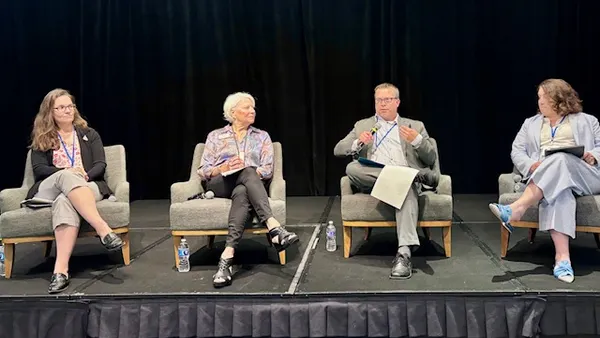Dive Brief:
- When it comes to professional development for educators, research suggests that built-in time for teacher-to-teacher collaboration, one-on-one coaching through observation and feedback, and follow-up meetings can all help to improve outcomes for students, according to an analysis released Tuesday by the Research Partnership for Professional Learning.
- Evidence also shows professional development may be more effective when it builds on practices specific to academic subjects — instead of solely focusing on improving teaching methods, the analysis found. Additionally, providing instructional materials such as curricula or formative assessments and zeroing in on teachers’ relationships with students can boost professional development.
- On top of those specifics, the researchers suggest two overarching principles are needed to guide effective professional development: honing in on teachers’ daily practices in the classroom, and following up on a teacher’s progress via classroom visits by other educators and coaches.
Dive Insight:
As this week's explosive results of declining math and reading scores nationwide made pandemic learning loss even more evident, it’s critical federal relief dollars go toward research-based approaches — including professional development — to help students from falling further behind, education leaders advise.
Professional development has become one of the most popular uses of Elementary and Secondary School Emergency Relief fund III aid nationally, according to an October report by FutureEd. In fact, the report found roughly 43% of districts and charters plan to invest in professional learning. With the nation’s largest districts, 82 out of 100 are dedicating federal COVID-19 aid to train teachers on subjects like “evidence-based instructional approaches, family engagement strategies, and new technology platforms,” FutureEd said.
The Research Partnership for Professional Learning analysis also backs up recent recommendations by the National Council on Teacher Quality, which suggests that evaluations provide teachers with detailed feedback and coaching.
Researchers Heather Hill, of Harvard University and the Annenberg Institute at Brown University, and John Papay, of the Annenberg Institute, co-authored the analysis for the Research Partnership for Professional Learning.













